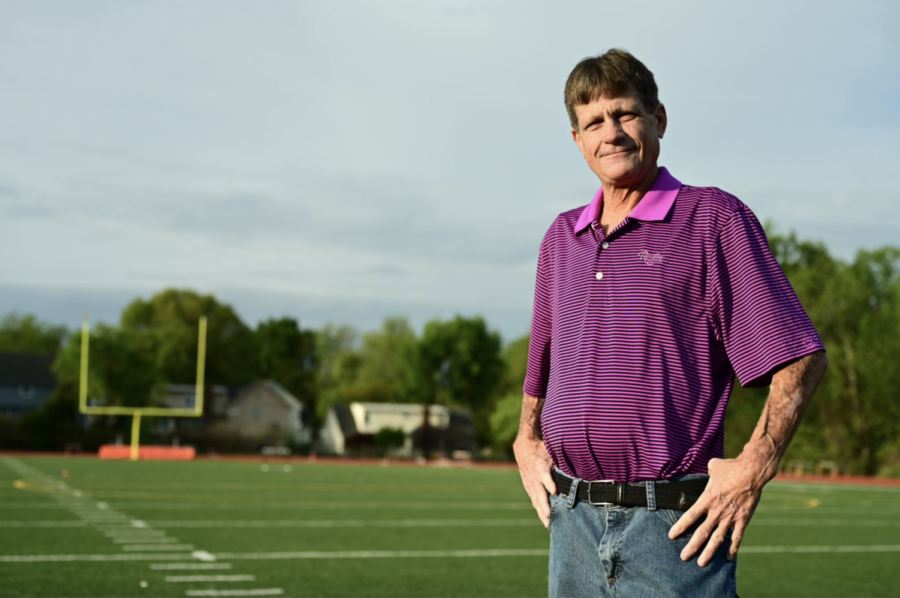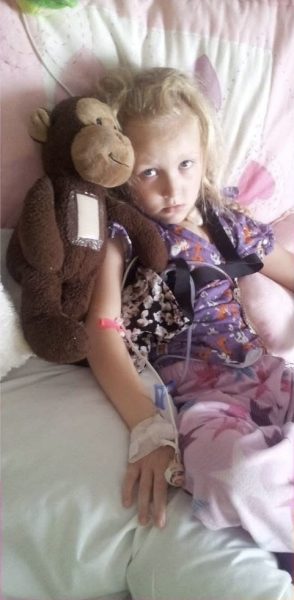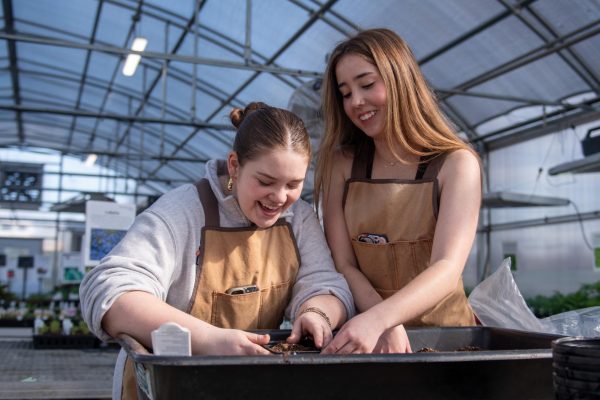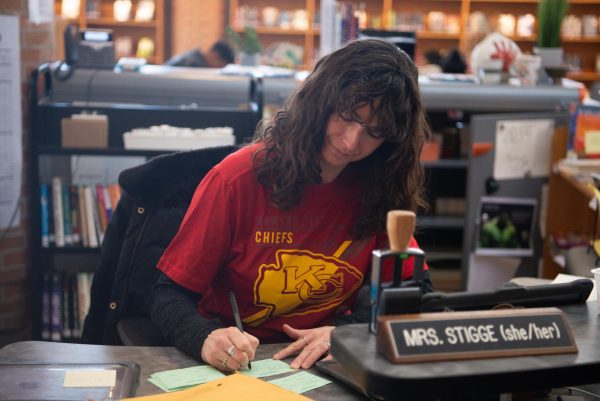No Excuses
Jay Black faces similar medical complications that he did years ago, before his kidney transplant in 2000
Wide receiver coach Jay Black stands on the NW football field May 4. In spite of medical complications, Black plans to coach this summer and next fall. “At one time I just kept thinking ‘six months,’ and now here I am six months later. This summer in August, I thought it was over. With the way I’m feeling now and the way I’m gaining back weight again, I told Bo Black that he can count on me to coach next year.”
May 17, 2023
Jay Black lies alone in a hospital room. The buzz of the fluorescent light above is only momentarily drowned out by each rhythmic beep of the heart monitor.
Beep, buzz. Beep, buzz. Beep, buzz.
A foot-long incision from the base of his abdomen to his ribcage is held together by surgical glue. Tubing protrudes from the opening in his right side. It is working to drain any blood that may escape Black’s arteries – arteries that had just been fused with Cheryl Willem’s kidney.
Black is thirsty. He rolls his head to the left to see his water and begins to reach. His fingertip grazes the side of the cup.
He tries again. It’s just barely out of reach.
Since the surgery, he hasn’t been able to move much. He hasn’t wanted to move much. Moving hurt – it hurt bad.
In comes Willems on her walker. She looked him up and down and said, ‘Get out of bed, Black. No Excuses!”
“No excuses,” that was one of Black’s slogans while coaching football in Protection, Kansas.
“No excuses,” he lifted his head.
“No excuses,” he moved the bedspread.
“No excuses,” one foot on the floor.
“No excuses,” then the other.
***
In the spring of 2000, the hand seizures began. Black’s fingers would lock up, curled into a first. From thumb to pinky, Black – a high school history teacher at Northwest – would pry each finger loose.
“Weird stuff starts to happen when your blood gets dirty,” Black said.
Next came the vomiting. Each hurl brought up more and more blood. And at times it was pure blood – the amount made it look like he had cut himself open.
He thought it was a stomach ulcer, what else could it be?
He didn’t think about his dad’s high blood pressure or, even, his own high blood pressure.
He didn’t think about his grandma, who died while on dialysis for kidney-related complications. He didn’t think about his own kidney.
So, when he finally went to the doctor, and the physician asked: “Can you drive,” it came as a surprise. Of course he could drive, everything was going fine – he thought everything was going fine.
The doctors next words came quickly, too quickly:
‘Well…’ He said, ‘You’re in critical condition.’
***
Everybody at Protection High School knew Jay Black, and Cheryl Willems was far from an exception. Three out of four of the Willems kids had Black as a coach, history teacher or both.
“The one word I would say about Jay Black is: motivator,” Willems said. “It’s not something that just comes and goes. He has constant energy and continues to motivate from the first thing in the morning until whenever his players see the last football film at his house at night.”
In the halls or on the field, Black was always there for the Willems kids. So, when he showed up to watch Jaelyn Willem’s All-Star football games, it wasn’t a surprise. Black had been Jaelyn’s football, basketball and track coach.
When Cheryl first saw him that night, she knew something was wrong. Critically wrong.
He had lost weight, the coloring of his face was beyond pale and he didn’t have the usual bounce in his step. But, when she talked to him, he was still the old Jay Black – the coach that was always 100% behind her son and every boy out on the field.
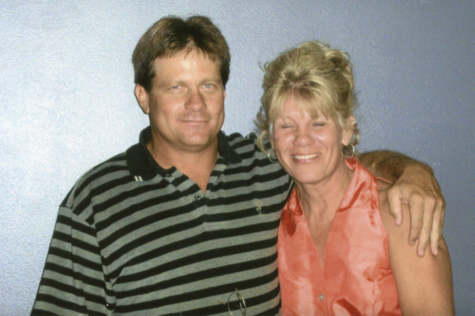
by side. “Everyone in Protection, Kansas would have offered Jay Black
their kidney,” Willems said. “I was just the lucky one who got to donate
my own.”
He told Cheryl and her husband that he had been on dialysis. He told them that he on a transplant list waiting for a kidney.
During the car ride home, Cheryl looked at her husband and said, “I’m going to go get tested.” Her husband replied, “If you’re not a match, I’ll get tested too.”
***
The average lifespan of a kidney transplant is 20-25 years – it has been about 23 years since Black’s.
“One of the misconceptions is that people think when you get a kidney transplant, you are automatically cured,” Black said. “ replaces dialysis.”
When Black is dehydrated he can tell because his hands begin to seize up again. He has felt pains in his lower right abdomen, right where Willem’s kidney sits.
Last summer Black’s health plummeted. He felt like he was freezing and his weight dropped to 123 pounds. He was certain he had lost Willem’s kidney.
“When I walked in last spring, Dr. Gruman was really worried about ,” Head Football Coach Bo Black said. “I hadn’t seen him in a month and a half. I walked in the room and, if I were a betting man, I’d say this guy is going to be dead in a month, month and a half.”
Bo Black and Jay Black have been coaching together for over 20 years. Despite sharing a last name, there is no relation. However there is a strong friendship that has held strong for years. The summer of Jay’s health decline, Bo was worried about him coaching throughout summer conditioning.
“I felt like I owed it to him, for him to be the one who tells me that he’s not going to be able to coach,” Bo said. “He sat out most of last year and I know that was really hard for him. When he made that decision, I really wasn’t sure that he’d ever be back. But I’ve always thought, family is football.”
Since that summer, Jay has recovered. He was put back on the transplant list, but declared inactive due to other medical complications. His doctor told him he will probably need to go back on dialysis next year and he has been mapped for another fistula to be placed in his left arm. The fistula will allow Black’s blood to be filtered out of his system and replaced.
“ I gave it all I got,” Jay said. “I take pride in my little farm. I take pride in our football team. I take pride in the classroom. Maybe pride is not a good word, but I’m going to give you everything I got, 100%. I can always get better. There’s ways to get better. That’s the goal: I’m always trying to give 100%.”



